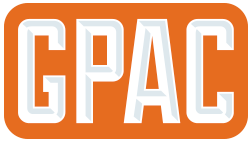Proof of COVID-19 vaccination or a negative PCR COVID-19 test result within 72 hours of the event will be required to attend this performance. In addition, there is a mask requirement inside GPAC.
Wednesday, October 20
Health Check: 6:00 PM
Doors Open: 7:00 PM
Concert Starts: 7:30 PM
Tonight, simply bring your ID and vaccination card or proof of a negative PCR COVID-19 test result (rapid tests and/or home tests will not be accepted) with you to the show. Health Checks will take place right outside the entrances to The Grove (click HERE for more details). You must have received your second vaccination by Wednesday, October 6, 2021, and your negative test result cannot be before Sunday, October 17, at 6:00 PM.
To complete your Health Check early, come by the GPAC Box Office with your appropriate documentation and identification. The Box Office is located at 1801 Exeter Road and is open between 10:00 AM and 5:00 PM Monday through Friday. For questions call 901-751-7500.
WRISTBAND: After you complete the Health Check process, put your wristband on and enter The Grove. The bar on the First Horizon Foundation Plaza will be open for cocktails before the show. You may also enter the lobby, but there are no drinks inside and the doors to the theater don't open until 7:00 PM.
MASKS & DRINKS: Per the Shelby County mask mandate, masks are required indoors. During this time, no drinks are allowed inside the lobby or Duncan-Williams Performance Hall, and you are required to wear your mask throughout the concert. Drinking fountains are located in the lobby breezeway between the restrooms.
INTERMISSION: No
PATRON LOUNGE: No
MERCHANDISE: Yes
BAR: Outdoor–Yes, Indoor–No Bar closes at 8 PM.
FOOD TRUCK: No
THANK YOU: We're doing everything we can to keep our patrons, artists, staff and crew safe during these challenging times. We appreciate your compliance with our protocols and safeguards so we can enjoy live music together!
“I like to talk and I like to play.”
So said Victor Wooten as he began his commencement address to the Class of 2016 at the University of Vermont’s Rubenstein School. This was his way of explaining why he wasn’t going to recite the speech he had written out for the occasion. Instead, for 24 minutes he shared his thoughts with them about life, about success and challenge and meaning, all while accompanying his words on the bass guitar strapped across his shoulder.
He played and spoke freely, gently and eloquently. He took his audience back to a bit of wisdom he and his brothers had received from their mother, back when they were just beginning to demonstrate the phenomenal talent that would culminate years later in worldwide recognition as the Wooten Brothers.
“What does the world need with just another good musician? We have plenty. What the world needs is good people.”
As he improvised a four-string soundtrack to frame and channel his ideas, Wooten expanded on the lessons she had imparted: “We’re already born special. ... In the history of humankind, your fingerprint has never been here and will never be here again. ... No one can take that away from you. Your job is to improve on that specialness and present it to the world ... “
These moments, whether witnessed that night in Burlington or later on YouTube, surely changed lives. They also capture what Victor Wooten really does best. Better even than his revolutionary technique is his conceptual redefinition of the bass guitar’s role.How can this be? What Wooten did with bass has almost no parallel in modern music. From Coleman Hawkins to and beyond John Coltrane, the great saxophonists approached their instrument more or less the same way. Same thing with Louis Armstrong and Miles Davis, Ray Brown and Esperanza Spalding: Styles progress, harmonic and melodic languages expand but essentially fundamental concepts remain the same. Not so with Wooten. After him, every bassist in the world began to think differently, much as guitarists did after Hendrix. Young bassists now start from a different set of assumptions than their predecessors did a generation ago. Wooten’s blazing, percussive chops lit a fire for many of them, as did his explorations of melody, nuance and phrasing.


